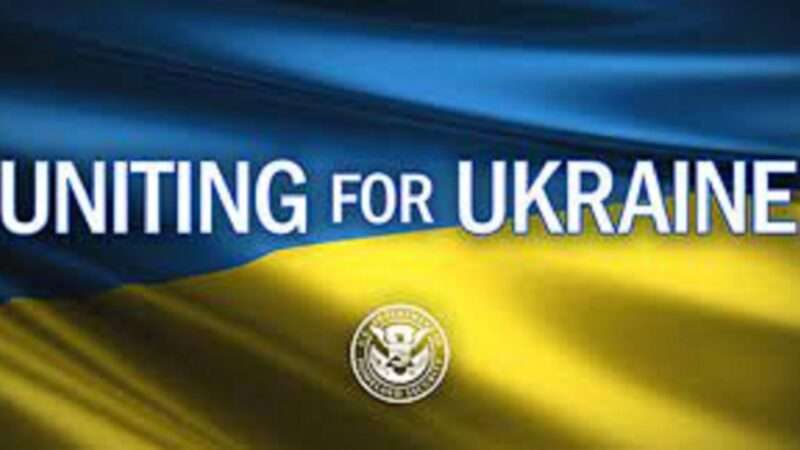

The Cato Institute has (with permission) posted a non-paywalled version of my recent Boston Globe article making the case for enacting an adjustment act giving permanent residency and work rights to Ukrainian refugees and others admitted by means of the presidential parole power. Here's an excerpt:
The United States has done much to open its doors to Ukrainian refugees fleeing the brutal Russian invasion that began in February 2022. Since that time, over 117,000 Ukrainians have entered the country under the innovative Uniting for Ukraine private refugee sponsorship program, in which I am a sponsor.…
But unless Congress or President Biden act soon, this success may be seriously compromised. The vast majority of Ukrainians admitted over the last year have so far been given only a temporary right to live and work in the United States. When their time limits expire, they could be subject to deportation or at least be unable to work legally.
Ukrainians admitted under the Uniting for Ukraine program are granted residency and work rights for two years after arrival. For the earliest program participants, those rights will expire in April or May 2024. More will lose legal status thereafter. Ukrainians who reached the United States before April 11, 2022, have been given Temporary Protected Status, which offers similar residency and work permits. But TPS for Ukrainians is currently scheduled to expire on Oct. 19….
Biden could potentially extend the Uniting for Ukraine and TPS deadlines through unilateral executive action. But such an executive fix would still leave refugees vulnerable to the whims of whomever sits in the White House….
The best solution for this problem is for Congress to pass a Ukrainian Adjustment Act, giving Ukrainian migrants who have entered the United States during the war the right of permanent residency and work status. That would give them a secure status no longer subject to the vagaries of politically driven executive discretion.
Such adjustment acts have been repeatedly enacted for migrants fleeing war and tyranny admitted under previous exercises of the presidential parole power used to create Uniting for Ukraine, beginning with Hungarian refugees fleeing the 1956 Soviet invasion. Congress could easily do the same in this case. But it may need to act swiftly. Significant legislation of any kind will be hard to enact during the 2024 presidential election year.
The article also addresses arguments that enacting an adjustment act for Ukrainians would be unfair to migrants from other countries:
One possible argument against a Ukrainian Adjustment Act is that it would be unfair to migrants fleeing similar war and oppression elsewhere. I agree the latter deserve permanent refuge as well. For example, Congress should also enact an Afghan Adjustment Act giving permanent sanctuary to refugees fleeing the cruel Taliban regime that seized power after the 2021 US withdrawal….
I have also advocated giving [permanent] refuge to Russians fleeing Putin's increasingly repressive regime…. The same reasoning applies to migrants fleeing horrific violence and oppression in Cuba, Haiti, Nicaragua, and Venezuela, to whom Biden extended the Uniting for Ukraine model in January.
But if it turns out that it is only politically feasible to enact an adjustment act for Ukrainians…. that is better than refusing to enact such legislation for anyone until we can do it for everyone. The best should not be the enemy of the good.
I have addressed concerns about fairness and discrimination in greater detail here and here.
The post Non-Paywalled Version of My Boston Globe Article Making the Case for Legislation Granting Permanent Residency Rights to Ukrainian Migrants and Others Admitted by Using the President's Parole Power appeared first on Reason.com.







